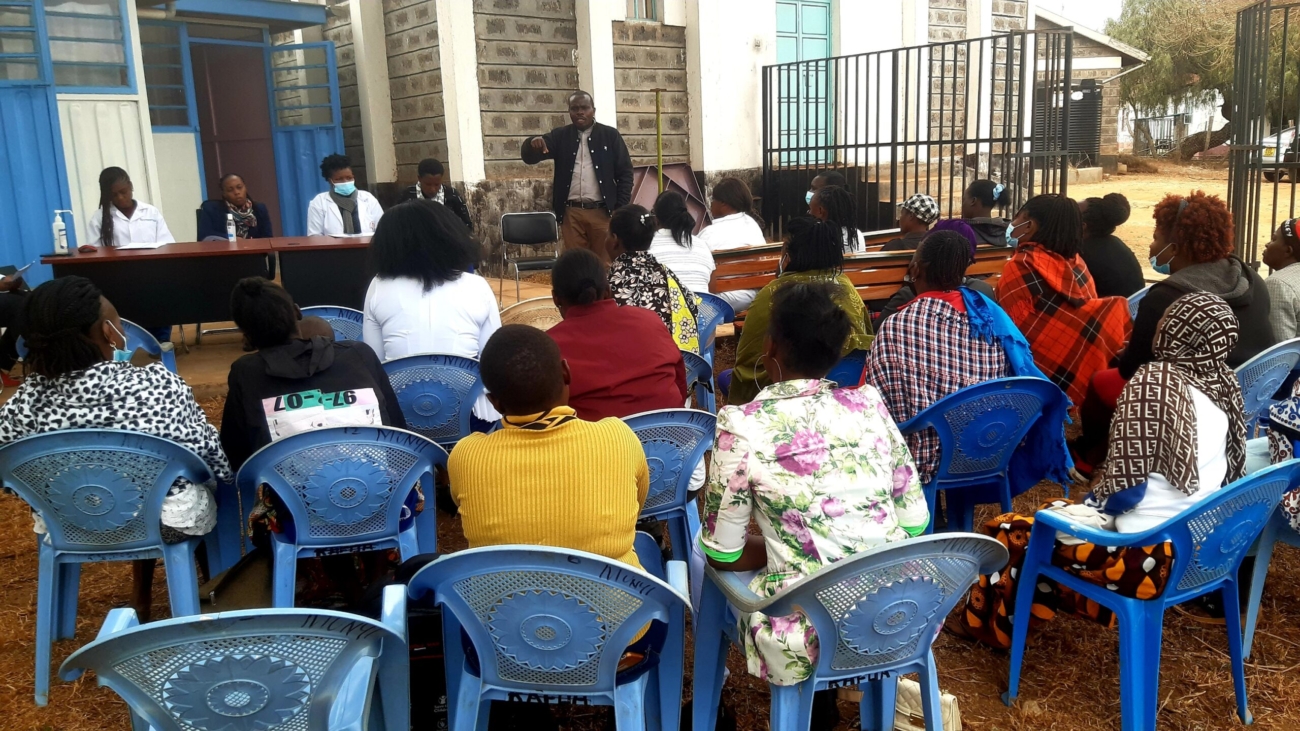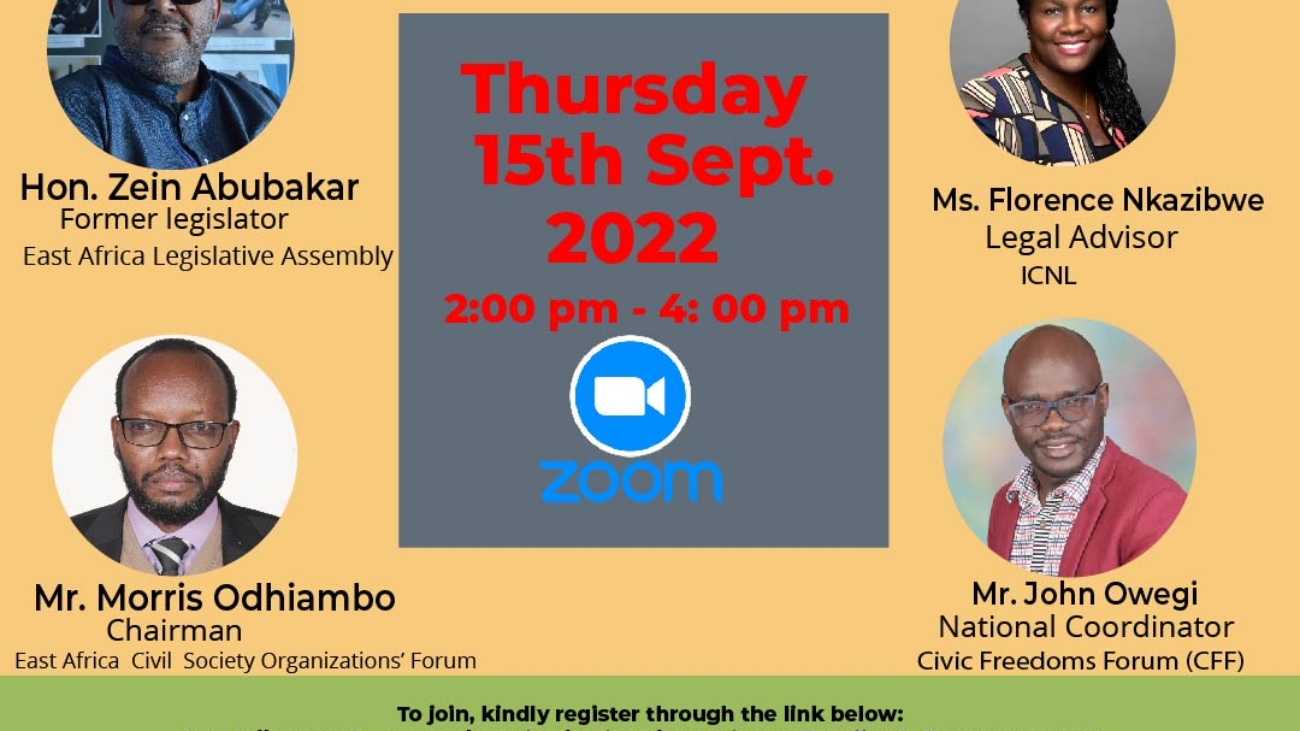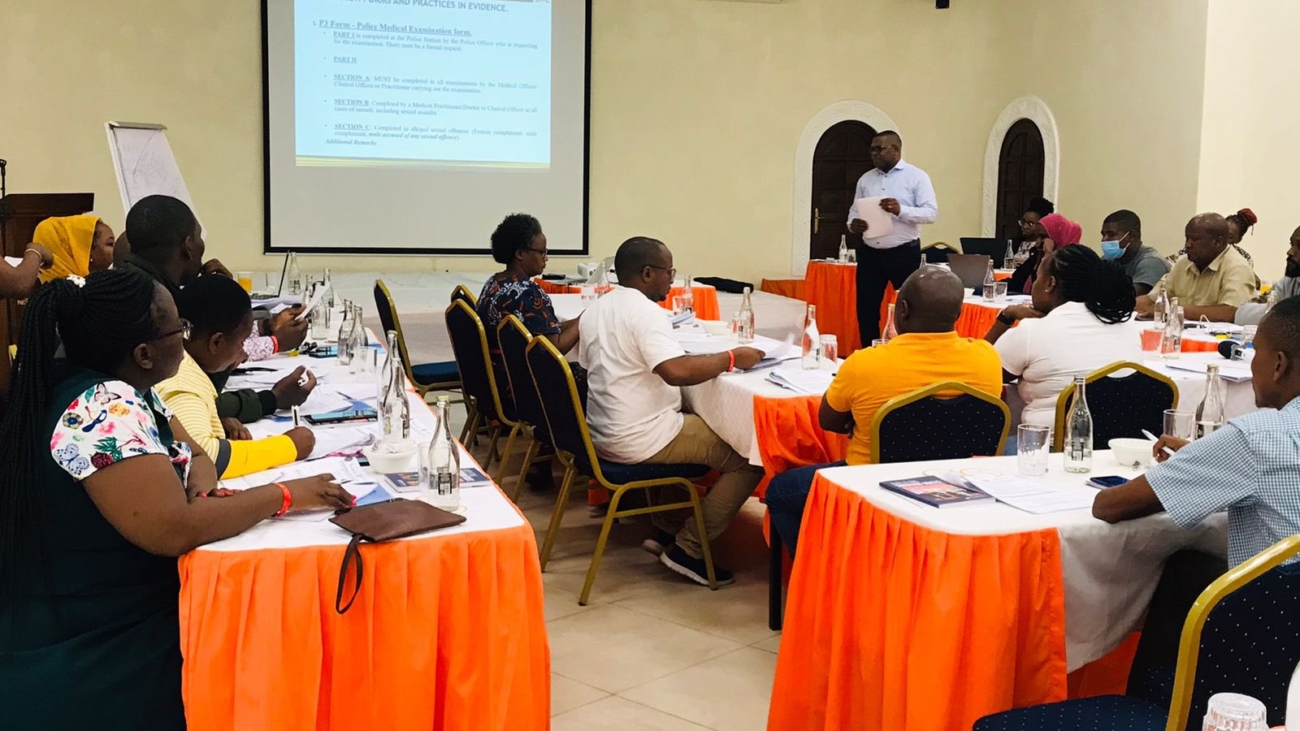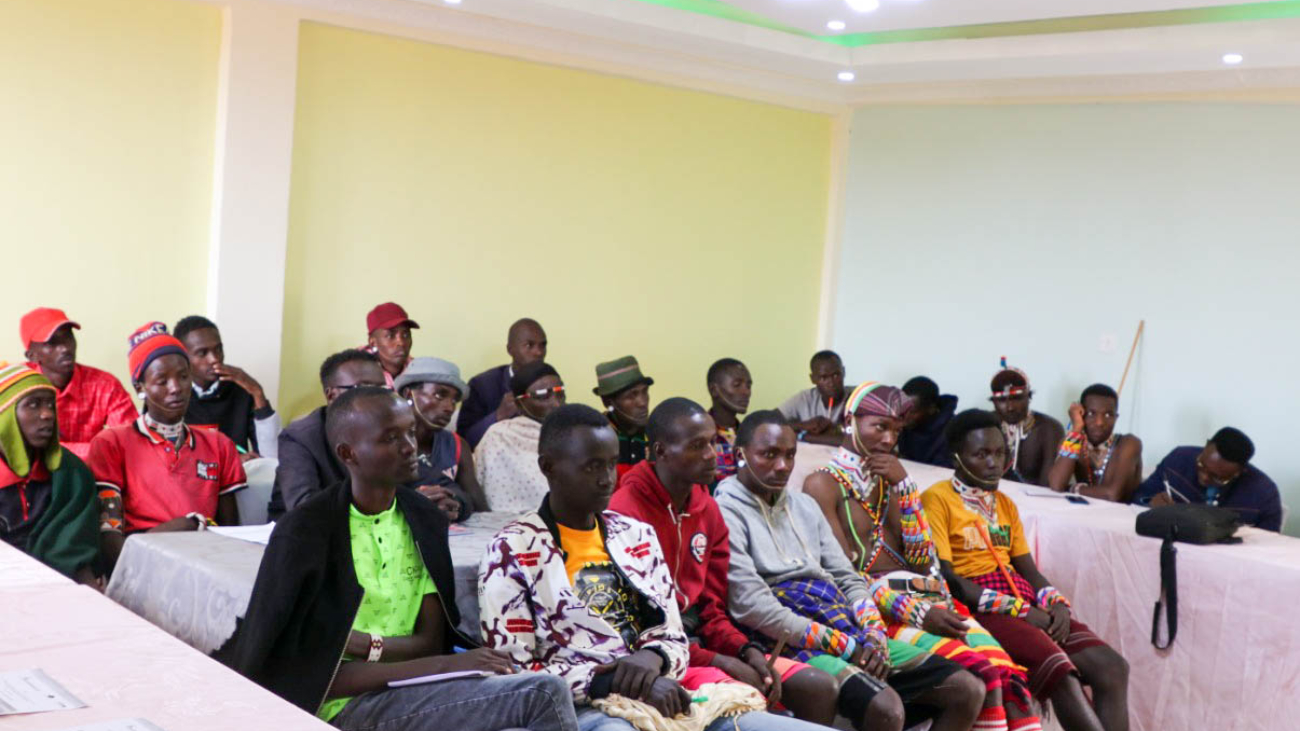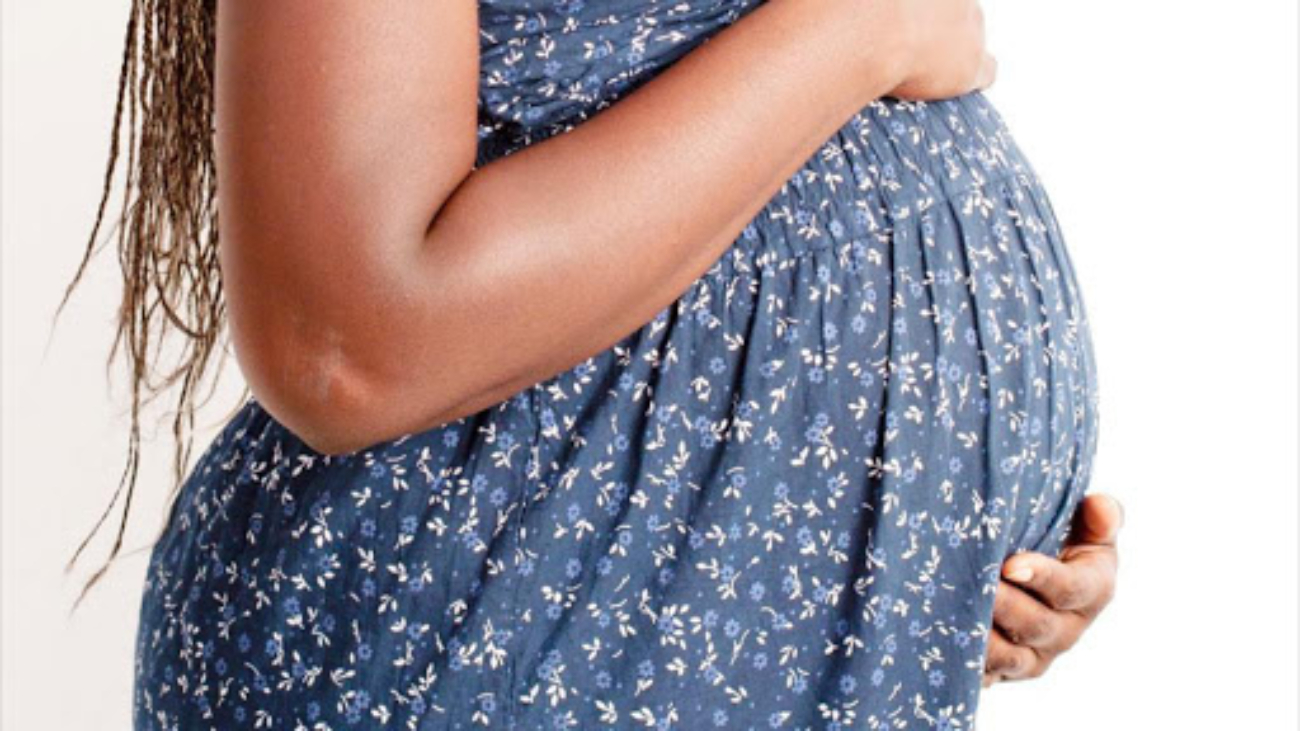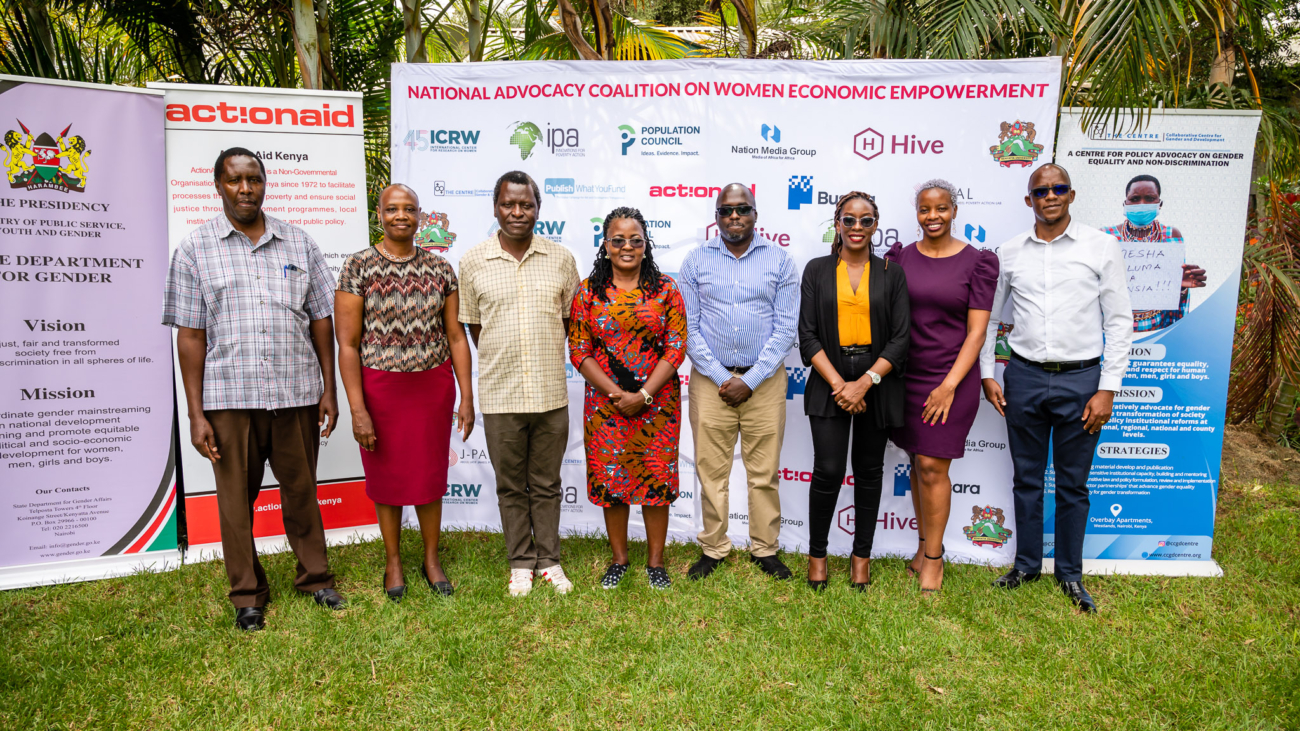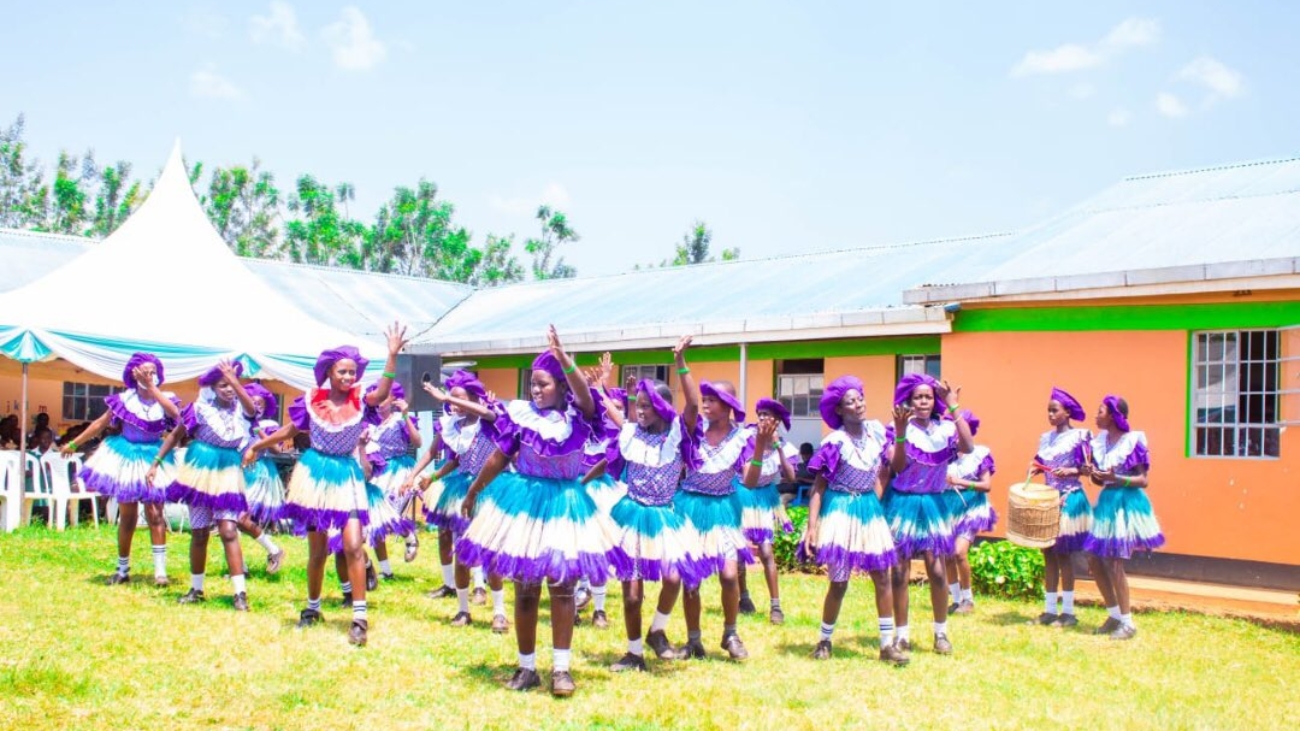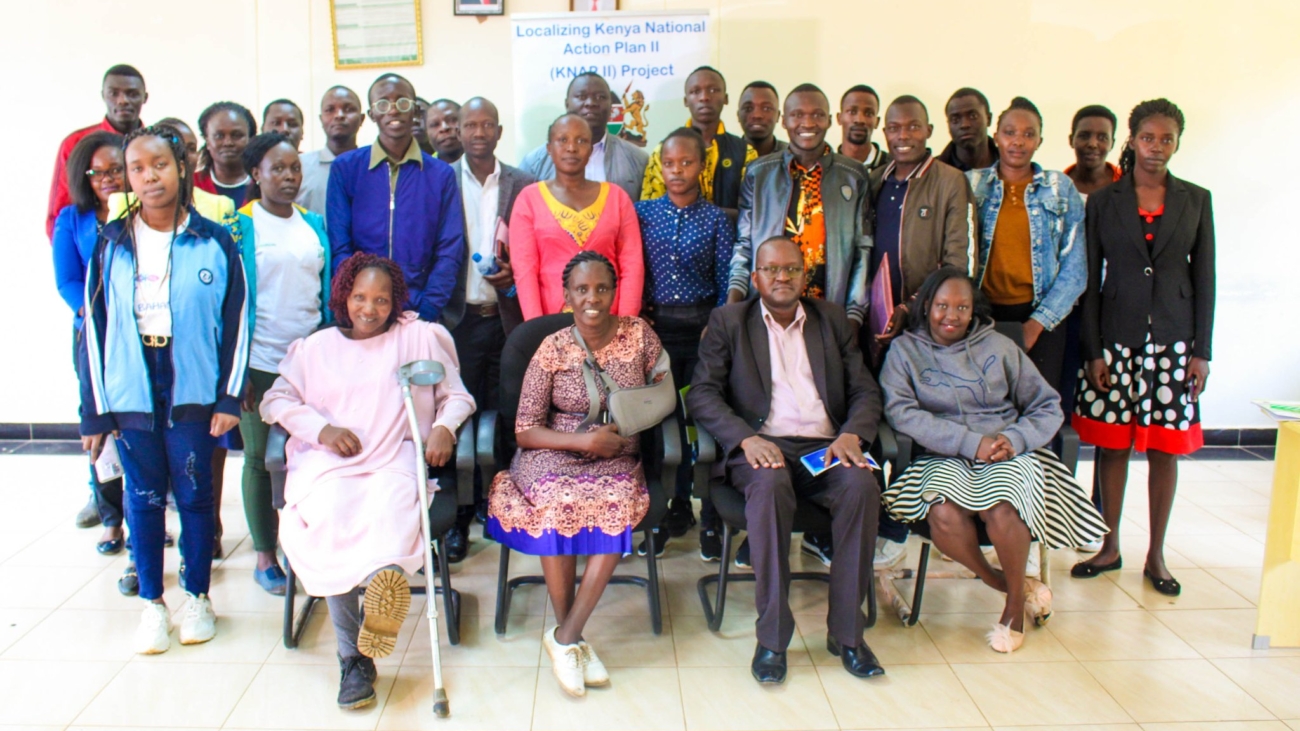Cabinet Secretary for Public Service, Gender and Affirmative Action, Hon. Aisha Jumwa (2nd right), Kilifi Governor, Hon. Gideon Mung’aro (centre) and Cabinet Secretary for Labour and Social Protection , Hon. Florence Bore dancing along with entertainers during the launch of 2022 16 Days of Activism at Water Grounds in Kilifi County (Picture: Courtesy, Ministry of Public Service, Gender and Affirmative Action)
Putting Gender-Responsive Budgeting into Practice
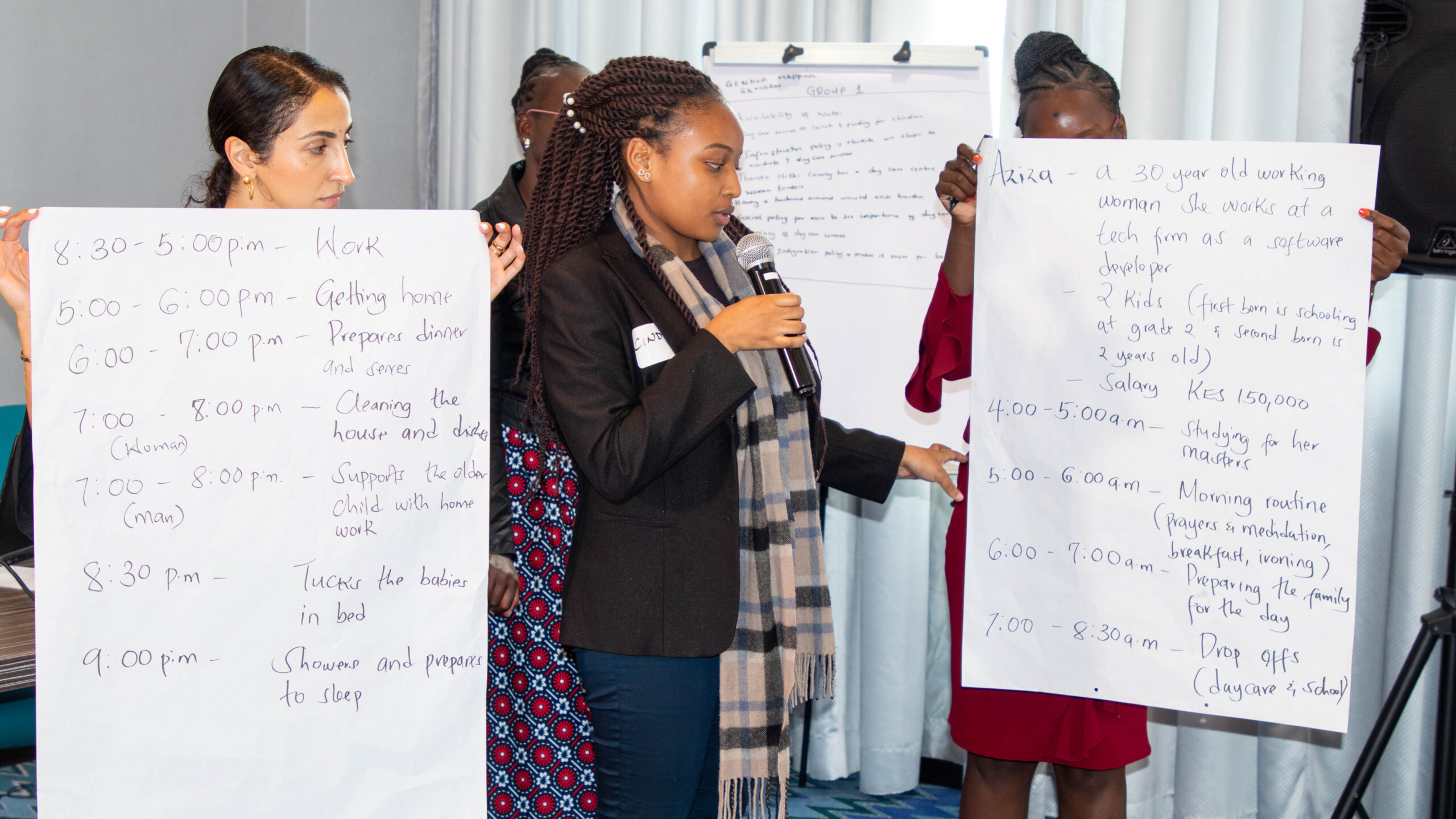
Participants from county governments, civil society organizations, and research institutions took part in a three-day training on gender-responsive budgeting held between the 6th and 8th of September 2022 in Nairobi. The training dubbed, “Gender Responsive Budgeting: putting GRB into practice” was jointly organized by the UK Women’s Budget Group (WBG) and the Kenya Gender Budget Network KGBN) which is hosted by the Collaborative Centre for Gender and Development (CCGD).
The program manager at UK WBG explained that GRB is not a special budget for women, but a gender-balanced policy approach that ensures equitable budgeting for the needs of women and men, boys and girls.
The training was attended by representatives of 20 organizations including, the University of Nairobi Women Economic Empowerment Hub, Investing in Children and their Societies (ICS), International Budget Partnerships Kenya, Follow the Money Kenya, County Government of Nairobi, Institute of Public Finance Kenya, Institute of Economic Affairs Kenya, Emerging Leaders Foundation Youth Alive Kenya, Fight inequality Alliance, International Peace Support Training Centre, Oxfam Kenya, Population Reference Bureau, County Government of Nyeri, Community Empowerment and Development Centre (CEDC), Kenyatta University, KGBN, CCGD and Ebyan Adiraham, Programme Officer, UK Women’s Budget Group and Lucille Onyango -the consultant.
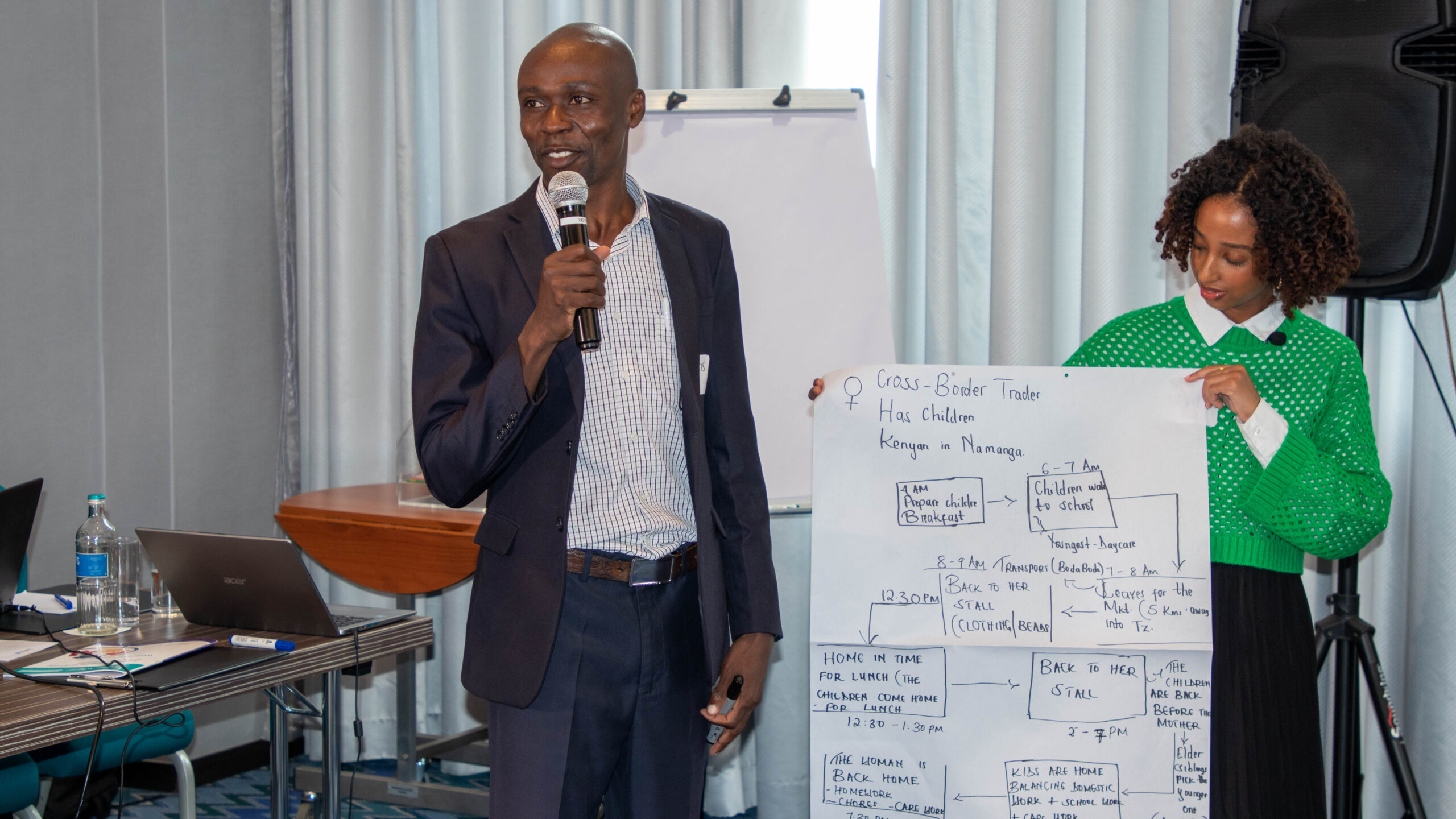
UK Women’s Budget Group is a small non-profit organization that analyzes government public policies from a gender perspective to influence and lobby to create a more gender-equal economy. Through their Global Partnership and Learning Programme, they have been partnering with CCGD on various capacity-building sessions on GRB, gender-sensitive policy planning and fundraising strategies. On the other hand, Kenya Gender Budget Network which is hosted by CCGD has been engaging in gender-focused advocacy work to inform programming and budgeting. The network is an open membership for stakeholders and new institutions and individuals interested in advancing GRB in Kenya and beyond can express their interest by writing an email to Josiah Kiarie at kgbn@ccgdcentre.org and copying ccgdinfo@gmail.org.
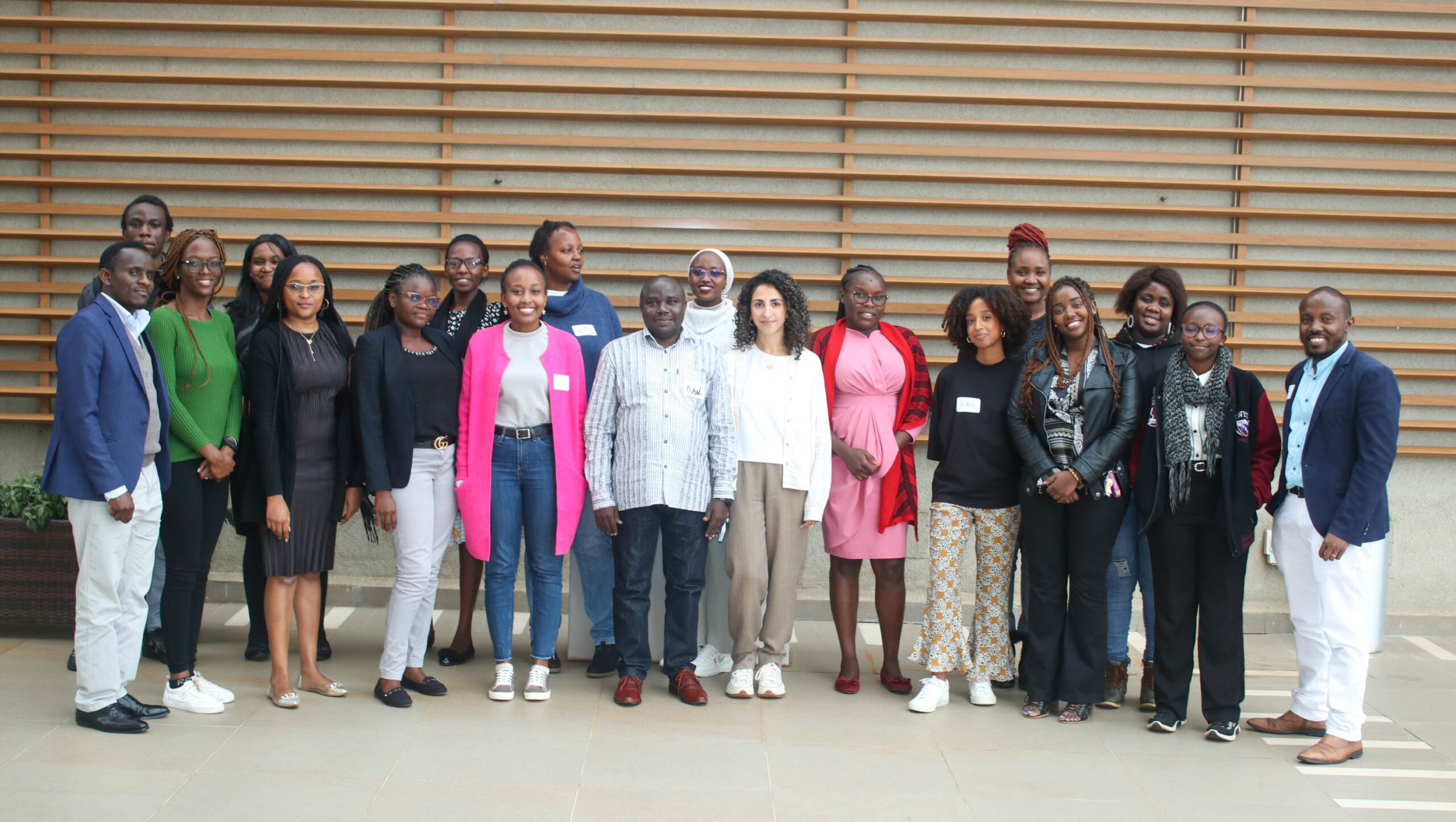
Kajiado survivors of violence caucus at the county Gender-Based Violence Recovery Centre (GBVRC)
Dr Richard Tempe addressing survivors of SGBV during a legal aid clinic held on 20th September 2022 at Kajiado County Referral Hospital GBVRC (Picture: Ruth Nashipae, CCGD)
Relaunch of the Protection of Civic Space in East Africa Platform
By Getrude Angela
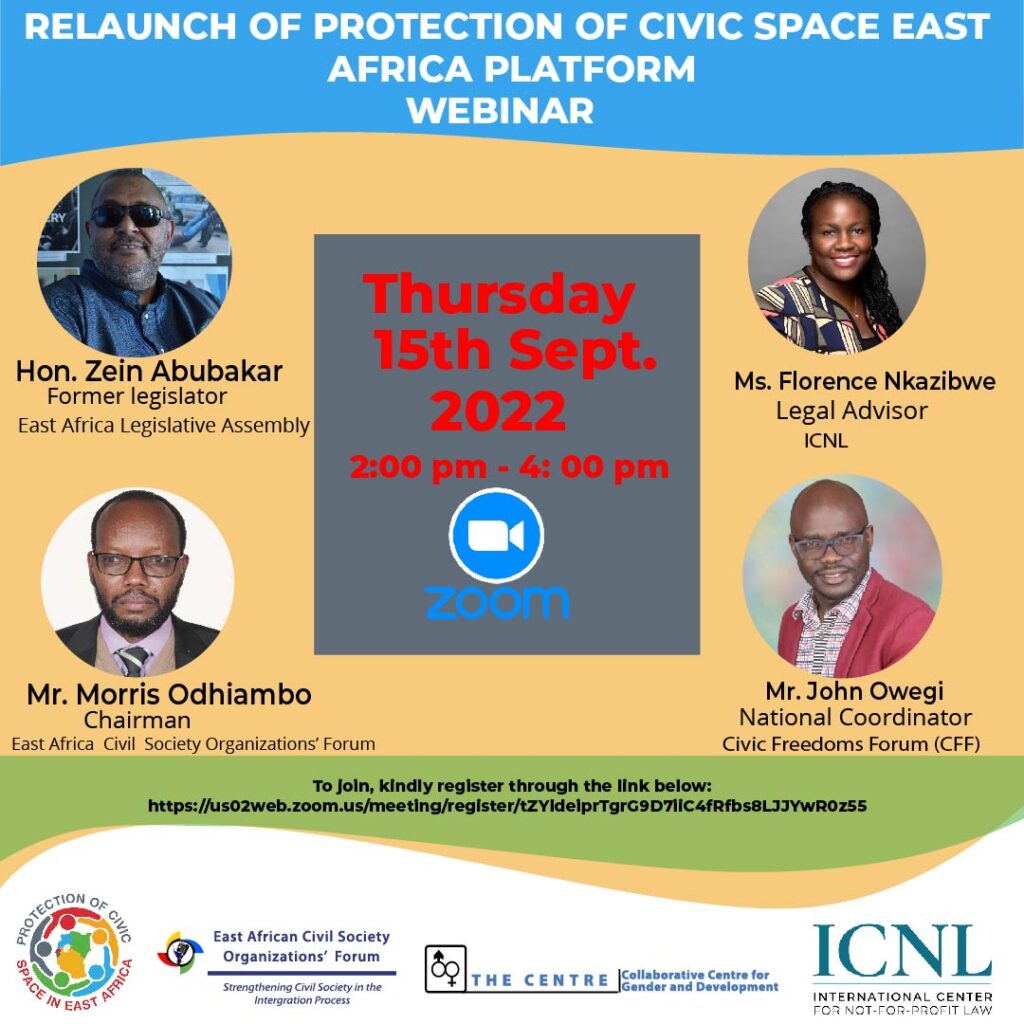
The East Africa Civil Society Organizations’ Forum (EACSOF) Kenya Chapter with support from International Centre Not-For-Profit Law (ICNL) on 15th September 2022 relaunched the Protection of Civic Space in East Africa Platform – an open interactive platform that seeks to re-enforce the capacity of civic actors in East Africa to counter shrinking civic space by sharing information, human resources strategies and share best practices in the region. The platform was originally launched on 19th September 2019.
Speaking at the relaunch, Hon. Zein Abubakar, a former legislator of the East Africa Legislative Assembly (EALA) stated that one of the cornerstones for creating the platform was to safeguard public participation in civic space.
He noted that constraining constitutional and legal frameworks from different EAC partner states have advanced the shrinking of civic which has left only Kenya with a fair legal framework in the region.
Ms. Florence Nakazibwe, Legal Officer at ICNL said the platform will consolidate expression and intensify efforts to address the challenge faced by civic actors and CSOs. Adding that it will also incorporate influential people such as traditional leaders, youth and FBOs, social movement activists, and trade unions as key allies that will amplify the civic space. She called on civic actors in Kenya, Uganda, and Tanzania to build the capacities of civic actors in the new states joining the EAC.
The chair of EACSOF-K, Mr. Morris Odhiambo urged members to interact with the platform as it will enable them to get regular updates on emerging trends in civic space saying that the platform will offer the opportunity for information sharing across the region and formulation of strategies to enforce and safeguard civic space.
Kwale County medical, law and justice actors join efforts to improve the collection and handling of SGBV -related evidence
By Maurice Goga
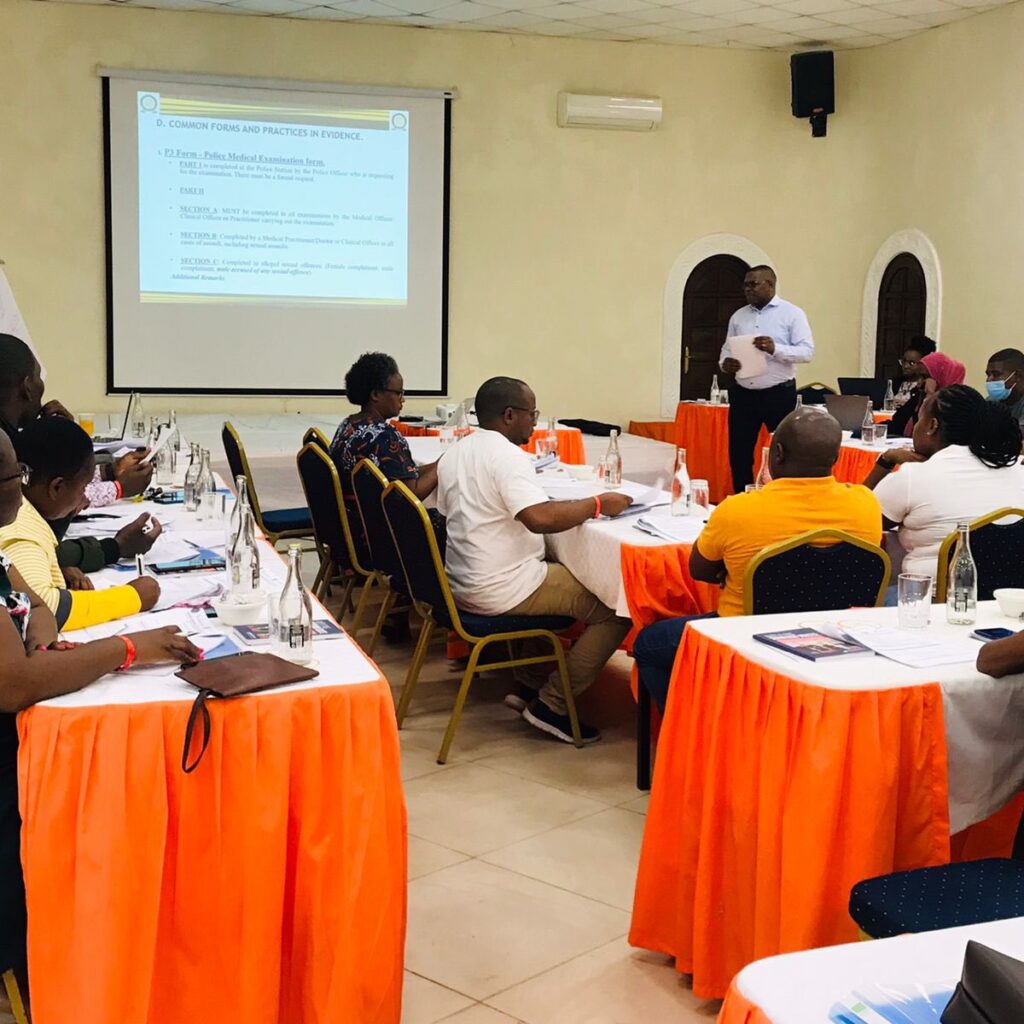
Clinicians, police, Office of the Director of Public Prosecutions and judiciary representatives held consultations on collecting and handling SGBV-related evidence to ensure justice for survivors.
Speaking at the meeting, Msambweni Law Courts Senior Resident Magistrate, Hon. Sandra Ogot stated that the chain of conviction starts with the police who compile evidence before handing them over to the Office of the Director of Public Prosecutions (ODPP) which then presents the evidence before the court.
“The police are the first point where survivors of SGBV run to before they proceed to the hospital for examination by clinicians. Once the evidence is lost at this point, the case is lost because the evidence determines whether the case will end up in conviction or acquittal,” Hon. Ogot said.
The Senior Resident Magistrate called on the police not to accept any form of bribery to interfere with evidence saying interfering with evidence will delay or deny justice to the survivors.
Mr. Mulama Allen, Prosecutor from the ODPP stated that most medical practitioners and the police usually have a challenge when filling the P3 and PRC forms as the prosecution teams often have challenges in interpreting the filled forms which have led to many acquittals.
On her part, Fatuma Hadi Ali, a Senior Superintendent from the Directorate of Criminal Investigations said that Kwale County has seen a reduction in the number of unreported SGBV cases which she attributed to the establishment of police gender desk and policare at various police stations across the country. She urged the police officers to ensure that they go through the evidence and exhibits with the plaintiff before the case proceeds to court for a hearing.
The participants said that through community policing they have been able to respond to SGBV cases which has led to a decline in the cases of SGBV in Kwale County. However, some of the cases go unreported due to preference by community for community informal resolution mechanisms.
CCGD continues to strengthen support and services to SGBV survivors by offering institutional support to the Msambweni Referral Hospitals; Gender-Based Violence Recovery Centre (GBVRC).
The GBVRCs offer clinical and psycho-social support to survivors as well as referrals to law and justice institutions support services including medical attention, psychosocial support and linkages to referral pathways whenever they report their cases.
Samburu youth join search for peace
By Getrude Angela
Samburu morans (male youth) met at a peace forum in Samburu County as part of their engagement in the prevention of violence and protection of women from violence. The morans said that the high school dropout rate has led to an increase in their involvement in violent conflict in the county because those who have dropped out of school are often involved in cattle rustling.
The morans called for the formation of peace ambassadors clan groups that would enable them to be seen as agents of peace and not perpetrators of conflict and violence, especially during campaigns and communal conflicts. They said they are not involved in the decision-making process due to age-based cultural barriers
The stakeholders present reiterated that the issue of unemployment and drug abuse should be addressed.
Currently, CCGD is implementing the Women, Peace and Security Program which aims to end the double marginalization of women in peace and security processes in the counties of Mandera, Samburu, and Baringo counties. The involvement of the youth in peace-building processes and giving them a voice at decision-making tables should enhance peace and security in the counties.
Efforts to address teenage pregnancies and sexual and reproductive health rights in Samburu County
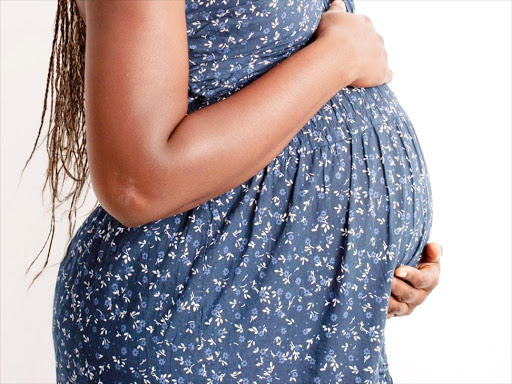
Empower Pastoralist Organization of Kenya held a sensitization workshop for 35 teenage mothers in Maralal town, Samburu County. The event focused on understanding the root cause and challenges of teen pregnancies in the county. Further, teenagers were sensitized on sexual and reproductive health rights, GBV, referral pathways, and available opportunities for young mothers.
According to statistics obtained from Samburu County, Health Department shows that 832 teenagers became pregnant between January and March 2022 and the health officials fear that the number is will spike by end of this if nothing is done by both national, and county governments and other stakeholders.
Teen mothers cited FGM and child marriage as the main causes of teenage pregnancy in the county saying in most cases, they are usually married off after the act. Further, they mentioned a lack of funds to start a business.
Samburu County Assistant County Commissioner, Mr. George Murage said high poverty levels, SGBV and retrogressive cultural practices in the county contributed to the rise of teen pregnancy.
“Teen mothers are a vulnerable group who should be made aware of the existing government opportunities and support and shall be given priority to teen mothers during the distribution of relief food and funds, “said Mr. Murage.
Mr. David Wambua, Samburu County Police Commander urged the young mothers to report cases of GBV to the special unit at the police station where young girls and women can report GBV cases.
He noted that if reports on cases of GBV can be done promptly by the community including young mothers then the county will be free from GBV and enhance opportunities for women.
The girls promised to report SGBV cases using the HAK 1195 hotline.
By Getrude Angela
Road map for unpaid care and domestic work policy
The National Steering Committee on the Unpaid Care and Domestic Work policy (UCDW) held a three-day stakeholder meeting at the Manzoni lodge in Machakos County with the objective to develop a road map for the development of the UCDW policy.
Speaking at the meeting CCGD Executive Director, Mr. Masheti Masinjila stated that policymakers should address issues concerning unpaid care work as it has implications on the achievement of gender equality. Weak policies, socio-gender cultural beliefs and practices and inadequate provision of care services contribute largely to the disproportionate burden of unpaid care work by women.
Action Aid Kenya Executive Director, Ms. Susan Otieno urged the government to recognize, redistribute and remunerate unpaid care work. Adding that the 3Rs can only be achieved with support from the state and non-state actors.
While the UN Women representative, Ms. Maureen Gitonga commended Kenya’s ability to monitor gender-related data which has led to increased data collection and analysis resulting to filling gender data gaps across the Sustainable Development Goals.
“Time use survey will inform the development of the first national care policy in 2022 and shape the creation of the country’s first-ever satellite national account to measure unpaid care work as a priority in the fourth medium-term plan,” said Ms. Maureen.
Others present included representatives of Ministries and State Departments/Agencies; The University of Nairobi Women Economic Empowerment Hub (UON -WEE Hub and ICRW
The stakeholders called for quantifying the effect of unpaid care work through research.
CCGD is a member of the Steering committee on the development of a policy on unpaid care work.
By Getrude Angela
Calls for elimination of harmful practices affecting children
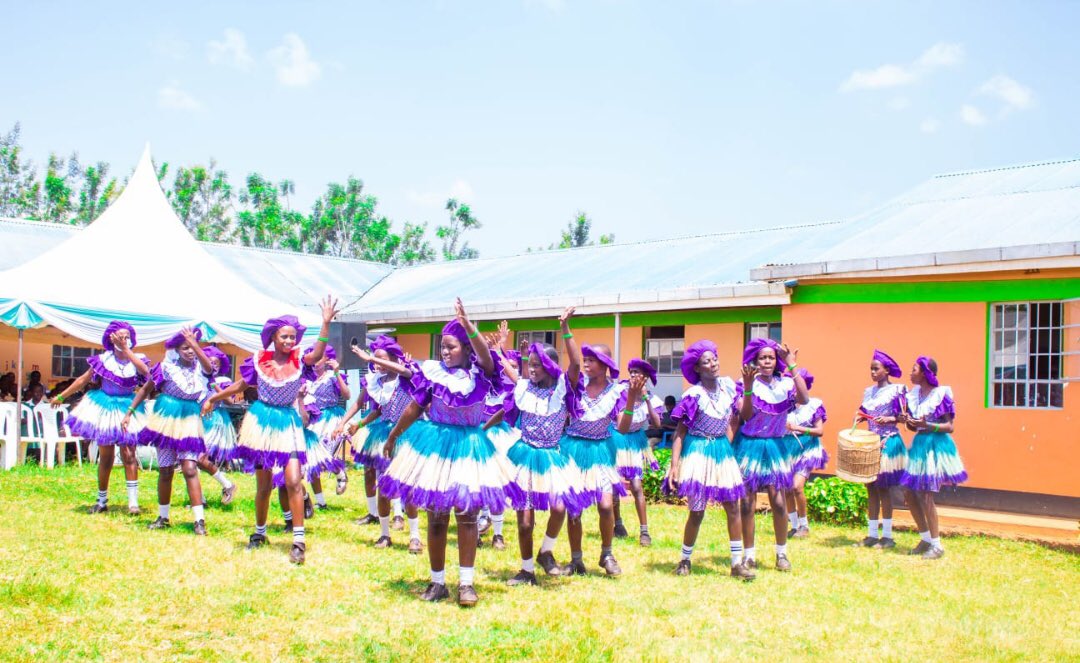
Calls for the elimination of harmful practices affecting children dominated the celebration of the Day of African Child on June 16, 2022
In Kwale, Busia and Mombasa. In Kwale County, the celebrations were held at Kinango sub-county where at least 1500 children and 500 parents were engaged on the need to eliminate harmful practices such as Female genital mutilation, child marriage and sexual violence.
In Mombasa County, the commemorations provided an opportunity for the children to deliberate on the progress of policies and practices around the prevention of harmful cultural practices against children.
Mr. Gilbert Kitili, County Directorate of Children’s Services in Mombasa said children face challenges including defilement, child trafficking, child marriage and child discrimination. He urged the stakeholders to give children opportunities such as Children Assembly to make decisions on matters affecting them.
In Busia County, 700 children marked the event at Busia Compassion Children’s Home in Matayos.
Currently, CCGD in partnership with the University of Nairobi Women Economic Empowerment Hub (UON-WEE HUB) implementing the program on reducing the burden of unpaid care work targeting working women among them small-scale cross-border women traders in Busia and Namanga border towns. The program enables women to access quality and affordable childcare services.
By Getrude Angela
Baringo Youth Demand Involvement in Peace Building
Youth in Baringo County have called on government and other stakeholders to involve them in peace-building initiatives. This comes in the aftermath of reported banditry attacks which led to loss of lives and displacement of people with women and children left to pay the price of the attacks when the security operation was put in place in the aftermath.
Speaking during a forum on the use of traditional and new media (social media) techniques to promote peacebuilding in Baringo County held on 27th July 2022 in Kabarnet town, the youth noted that they don’t have safe space and platforms where they can freely speak on issues of insecurity and conflict affecting the county.
Led by Felix Chirchir, a member of the Baringo Peace Consortium, the youth expressed their disappointment for not being actively engaged in the decision-making process in matters of peace and security in the county.
“Youth are mostly perpetrators of these attacks and involving them and giving them a platform to speak on some of the challenges we have as a county will help in addressing the challenges such as conflict,” said Chirchir.
Felix Kemboi, Youth Peace Ambassador for CSI- Kenya called for mapping for mapping of youth groups and community-based organizations working on peace and security and giving safe spaces where they can table their issues.
“As young people, we only want to be listened to and given an opportunity to table our ideas,” said Kemboi.
On her part, Winnie Tuitoek, Journalist at K24 noted that the security agencies have also neglected the youth when it comes to peacebuilding initiatives even in Baringo North and Baringo South where banditry attacks are rampant.
Participants are usually leaders and security agencies and, in most scenarios, the youth are not given time or space to give their views.
Further, the youth called on the community and security agencies to cease from victimizing and arresting youth who surrender their guns as this will make them shun surrendering the guns.
The youth also cited limited political goodwill by the government in promoting youth-led initiatives such as inter-communal peace tournaments, inter-cultural festivals, and art-based activism (artivism) that promote peacebuilding.
They called for the engagement of PWDs since some of them were disabled by conflict and they are usually worst affected.
Currently, CCGD is implementing the Women, Peace and Security Program (WS) which aims to end the double marginalization of women in peace and security processes in the counties of Mandera, Samburu, and Baringo counties. The involvement of the youth in peace-building processes and giving them a voice in peace processes is a key objective of the WPS program.
By Carol Jebet & Maurice Goga

